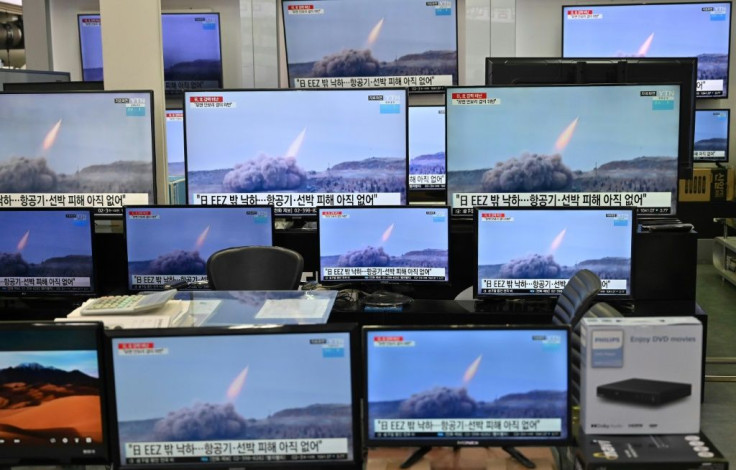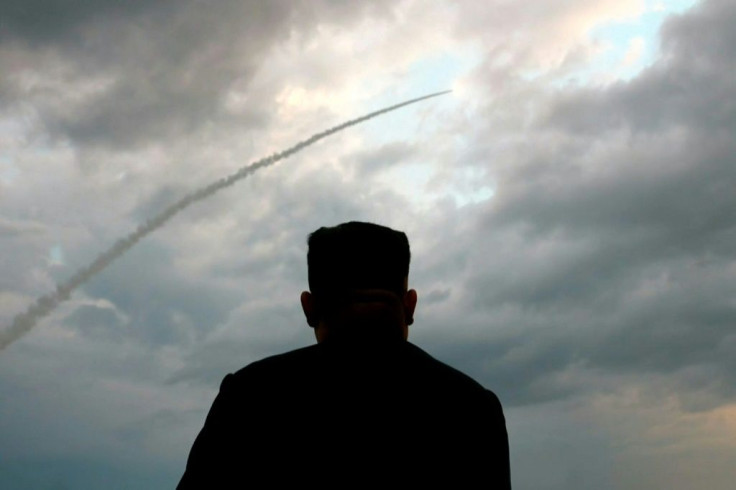Biden Weighs Pressure And Diplomacy With North Korea
Confronted by North Korea's defiant missile tests and continued nuclear program, US President Joe Biden is weighing whether to step up pressure or to open a new diplomatic initiative.
North Korea frequently greets new US administrations with provocations, and its apparent tests Thursday put Pyongyang back in focus just as the Biden administration was conducting a policy review and sounding out Pyongyang informally.
This is no ordinary transition in Washington as Biden defeated Donald Trump, who dramatically shook up the US approach by meeting three times with North Korean leader Kim Jong Un, even saying that he and the young strongman "fell in love."
Biden made clear the possibilities for North Korea, telling a news conference that "there will be responses if they choose to escalate" but adding that he was "prepared for some form of diplomacy."

The United States had initially played down North Korean launches Sunday, saying they involved small anti-ship missiles that were not banned by UN Security Council resolutions.
But two missiles launched Thursday appeared to be more significant -- ballistic missiles, although still in short range, banned by UN resolutions.
"We're slowly going up that spectrum, that ladder of the inflammatory nature of provocation," said Frank Aum, a North Korea expert at the US Institute of Peace and former Pentagon adviser.
"It's really a first test for the Biden administration to see how it will respond," he said.

Markus Garlauskas, a North Korea expert at the Atlantic Council, cautioned not to see the tests as a "cry for attention."
"Such launches are a sign of North Korea's clear determination to continue advancing its ballistic-missile programs as part of making good on the ambitious plans for North Korea's weapons programs" announced by Kim in January, he said.
Jenny Town, a senior fellow at the Stimson Center and director of the 38 North blog, noted that North Korea has carried out a series of short-range tests in the past two years with little pushback.
"I would think that if North Korea was really trying to test the US administration they would do something bigger," she said, adding that Pyongyang, if it is sending any message, may be aiming more at Seoul than Washington.
North Korea has frustrated successive US administrations, but Trump said that his diplomacy prevented war and was worthy of the Nobel Peace Prize.
Pyongyang had halted nuclear and long-range missile tests under Trump, but he was unable to reach a lasting agreement with Kim, who insisted first on the lifting of tough sanctions.
Biden has made clear he has no plans to meet Kim, accusing Trump of legitimizing one of the world's most ruthless leaders.
The United States has long sought to lean into China to rein in its ally, although Washington has plenty of other issues to press with Beijing amid soaring tensions.
One clear priority for the Biden administration is close coordination with US allies Japan and South Korea, the first two foreign destinations of Secretary of State Antony Blinken.
In the wake of Trump's one-on-one diplomacy with Kim, Town doubted that Biden would revive a broader format such as the former six-way talks, which brought the two countries in the room with China, Japan, Russia and South Korea.
Town expected some bilateral engagement with North Korea, in coordination with allies, but said the new administration will need to "think creatively" about how to engage Kim outside of summits.
"This administration is going to try and go back to a much more traditional, normal, working-level negotiation process and I think they are going to be met with a challenge that under Trump, and during this summit-driven negotiation process, Kim Jong Un was actively involved as negotiator," Town said.
"And unless Kim is willing to delegate that authority back down the chain, it is going to create some structural constraints to any kind of more traditional working level approaches," she said.
Aum said it would be a mistake for Biden, after Trump's diplomacy, to emphasize only defense and deterrence to force North Korea into negotiations.
"I think the problem with the US approach, and I'm talking about across many different US administrations, is that out of many options, they tend to always pick the same conventional one," he said.
If Biden does so again, "that's not going to be helpful."
© Copyright AFP {{Year}}. All rights reserved.




















